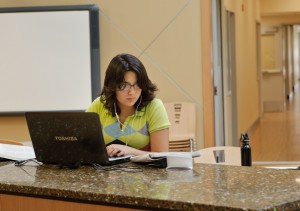Most people think of online learning as a quiet, solitary experience. But over the past few months, after interviewing students, parents, and educators, a different sort of picture has emerged. We've learned about who teaches and learns online, and why, what works and what doesn't, and perhaps most importantly, whether online learning affords the same quality of education as that of traditional schools.
I spoke with Apex Learning CEO Cheryl Vedoe, one of the leading online curriculum providers to traditional and virtual schools; Maureen Cottrell, a science teacher at iHigh Virtual Academy in San Diego, California; Rian Meadows, an economics instructor at Florida Virtual School; Patti Joubert, the mother of two full-time Florida Virtual School students; and Carylanne and Christiane Joubert, her two daughters.
As with most issues in education, nothing is black and white. There are many different kinds of learners and teachers, and while virtual education may be a revelation for some, it would never work for others.
It's true that Skyping and instant-messaging can't replace the face-to-face experience -- and for those who need the social interaction -- both teachers and students -- virtual schools would be difficult. "The high school experience in which you’re socializing with your peers or doing sports after school is important. There are a lot of teachers who would hate to use Skype all the time; they’d prefer being in the classroom. They would hate my job," said Cottrell, a science teacher at iHigh Virtual Academy. "I think you have to be a certain personality type and have a certain mindset to be a virtual teacher and still ensure student success."


